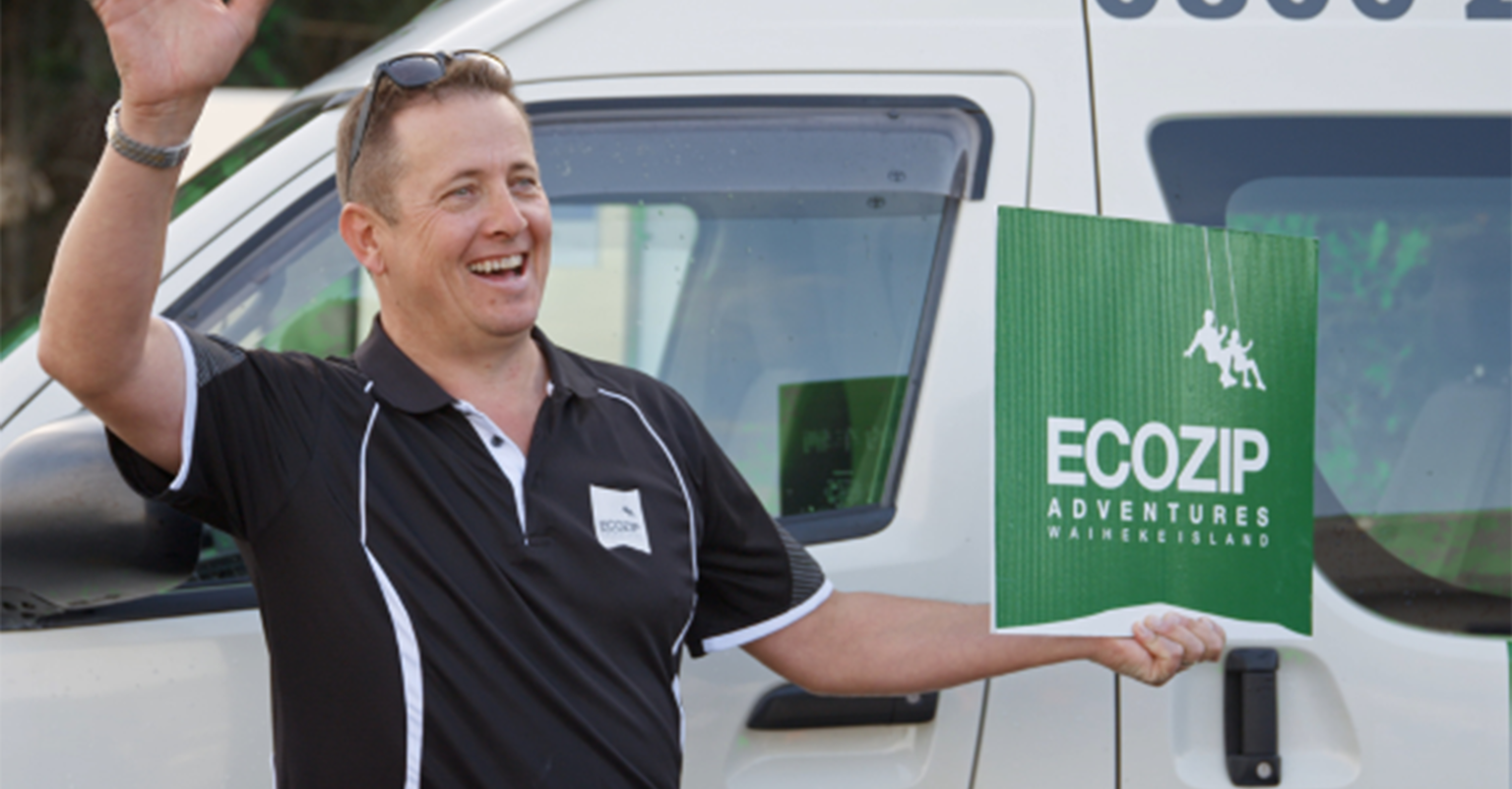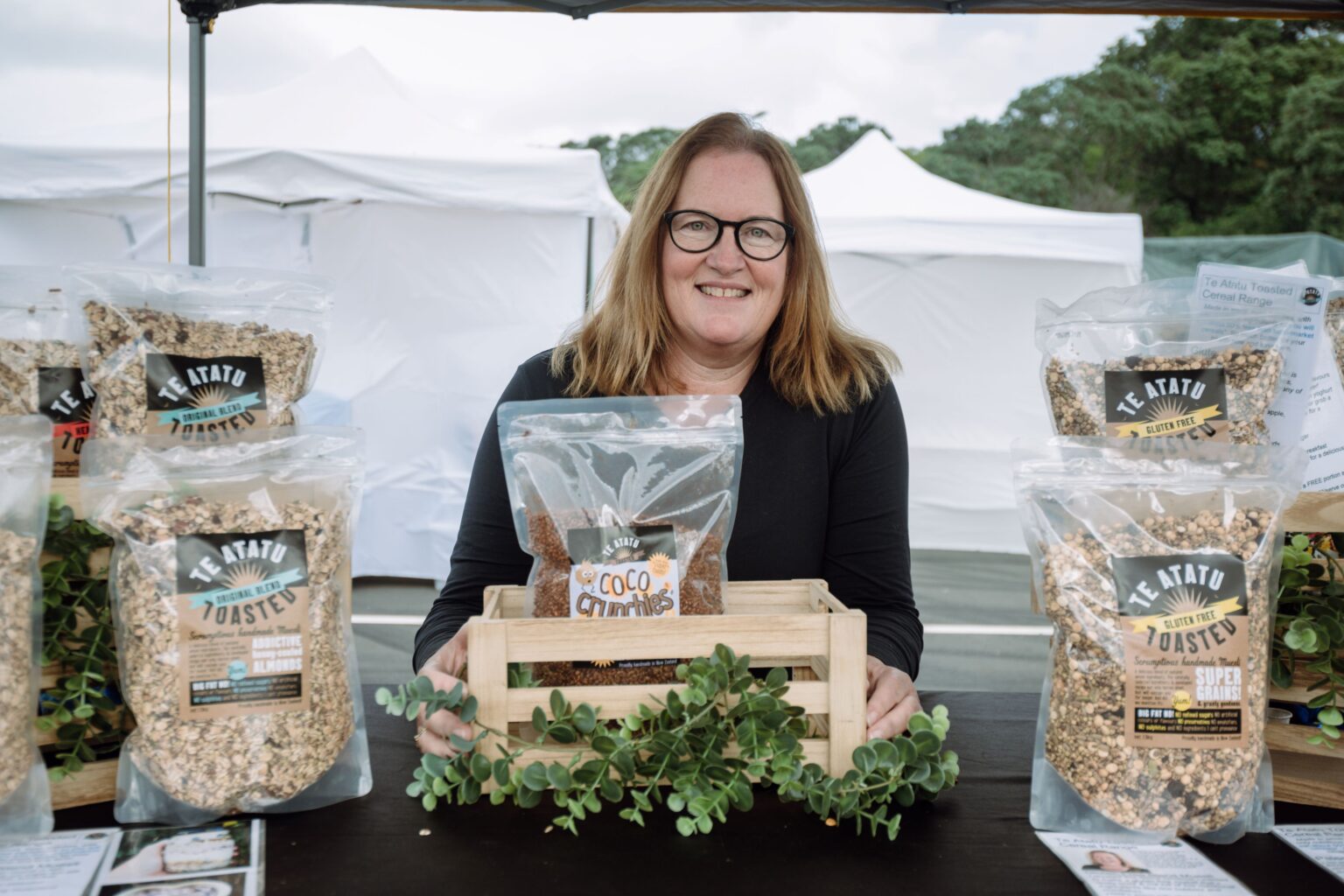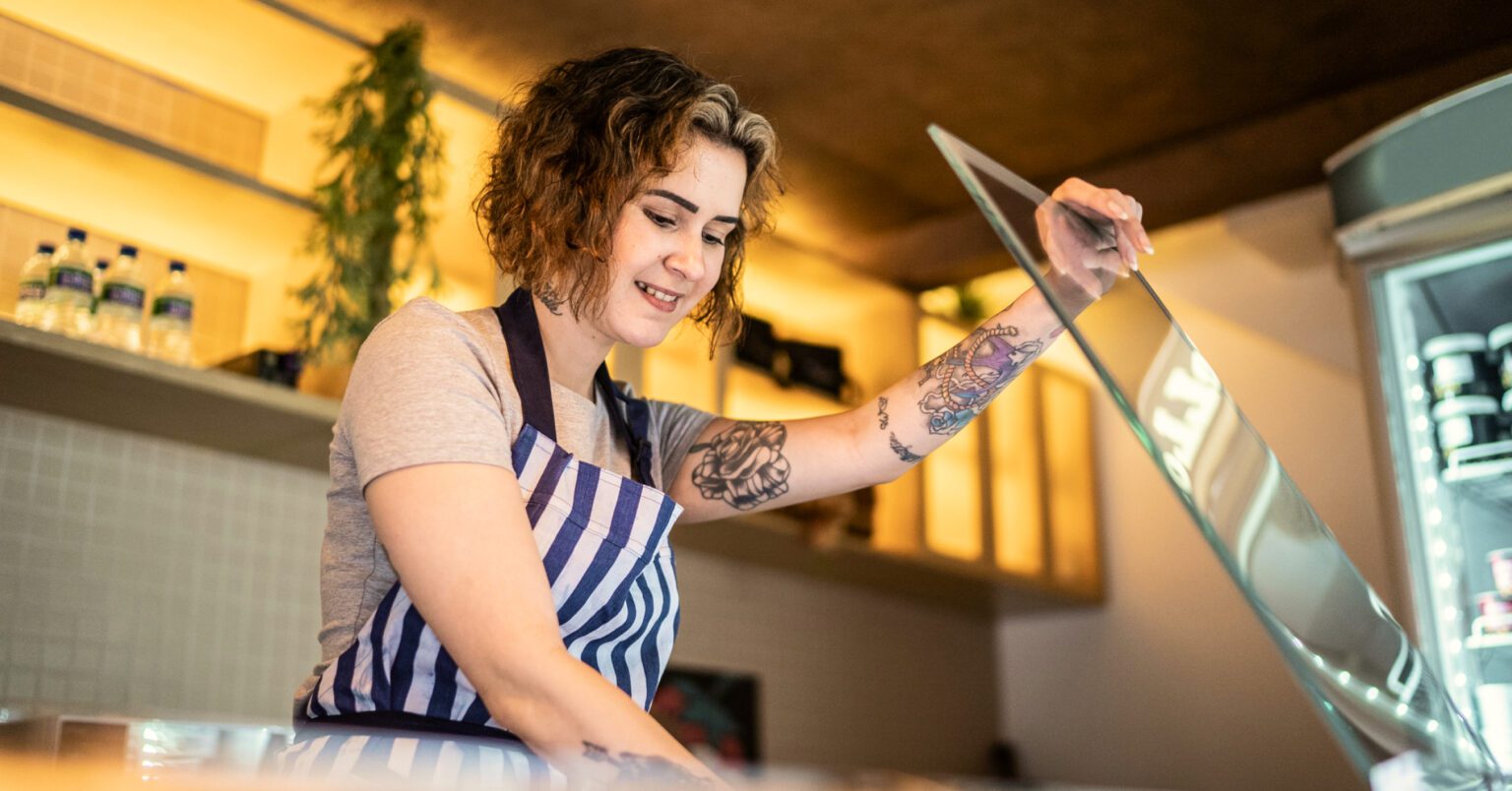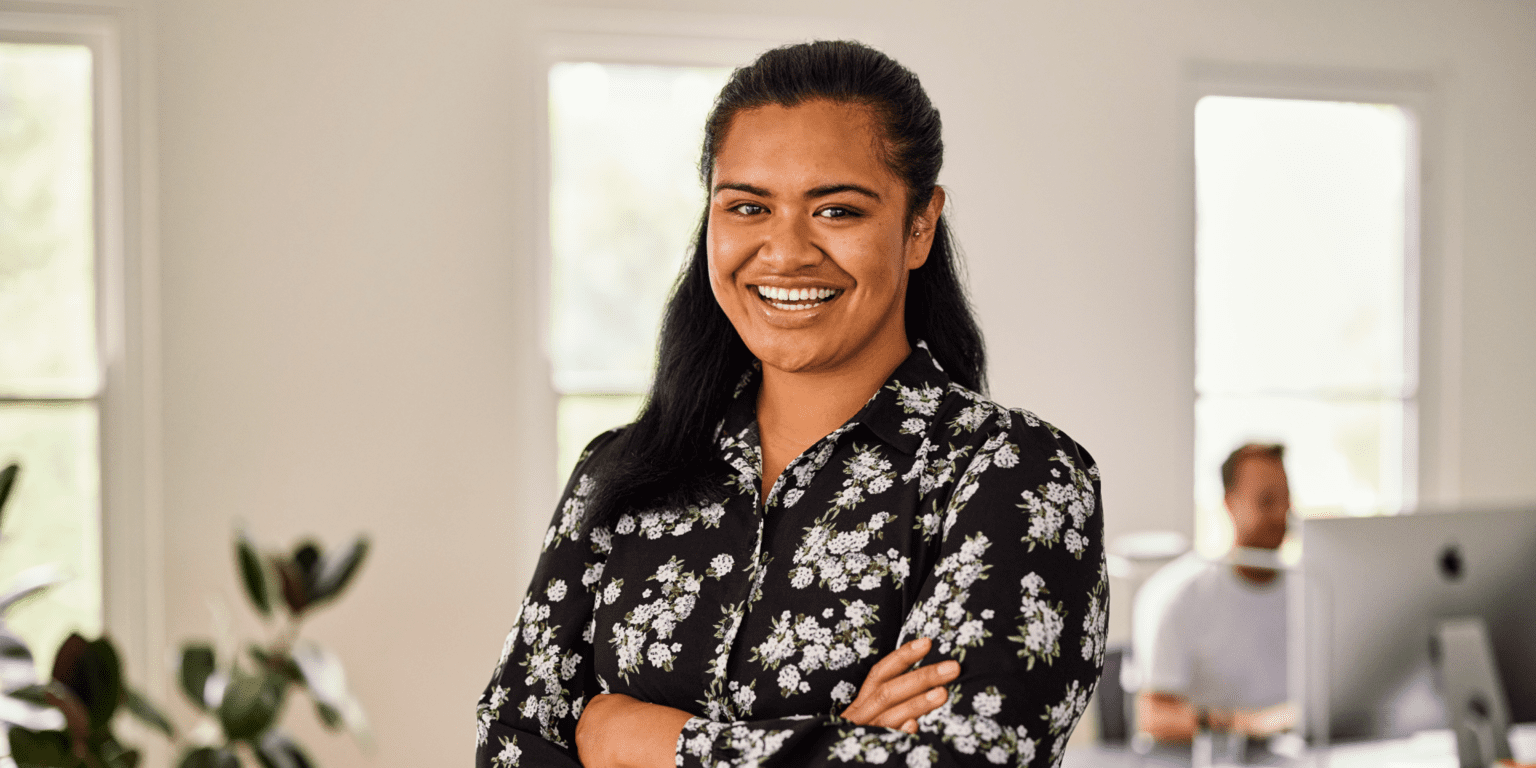An Englishman and a Texan walked into a New Zealand craft beer bar. Now they’re ziplining tourists through the sky across forest canopies.
It all started with cricket
I was a partner in a big corporate travel agency in central London. In 2008 we had a business trip to Dubai and my business partner said “The cricket is on in NZ – let’s go!” So we added a slight detour. After five whirlwind days I was in love with New Zealand. I applied for an entrepreneur class visa which gave me two years to get cracking and prove that they should let me stay.
A mate introduced me to a Texan called Chris Hollister and we spent a lot of time tramping through the wilderness and drinking craft beer and coming up with ideas for eco-tourism ventures. We were so blown away by the incredible landscape so close to the heart of Auckland, and loved the idea of getting people off the tour bus and into the bush.
One day Chris came into the pub and said “What about ziplining?”. I had no idea what that was and when he explained my first response was “Oh great – something really dangerous then”.

We were just a pair of buffoons
We had no experience in adventure tourism. So we started researching zipline experiences which took us all over the world – Costa Rica, Alaska, Hawaii, Utah. We distilled all our knowledge and opened EcoZip Adventures in 2012.
We thought it would take two years to be a commercial success. It took closer to four. And in that third and fourth year there were a lot of pregnant pauses in our conversations together as we wondered whether we’d badly miscalculated. That was definitely partly because we didn’t understand the nuances of the industry.
But we finally lurched into profit in the fourth year and things have got better and better ever since.

Businesses can do more good
Having kids really got me thinking about the environment. What kind of world were we going to leave for them? But it wasn’t until I arrived in New Zealand and saw the challenges presented by things like introduced predator species that I really began to understand what was at stake.
Conservation is a huge part of what motivates the business. Chris and I coined the term ‘commercial conservation’ to describe the idea that a commercial vehicle could fund conservation efforts. And that’s what we’ve done with EcoZip Adventures. A portion of what we make from the business goes towards weed eradication and native tree planning. And the results are amazing.
Before we started the business, the forest where we’re based was choked with weeds and native birds were threatened by introduced predator species. You couldn’t see through the canopy at all – it was so dense with invasive weeds. Now we’ve invested in conservation and the biodiversity is mindblowing. Native birds have returned and the forest is thriving with native species.
There’s a lot of enthusiasm for businesses that have genuine eco credentials. Woe betide anyone who ‘greenwashes’ these days – you’ll get found out! When we take our customers on the forest walk, we get to tell them that they are in part responsible for what they’re experiencing. That’s a great feeling.
I recently amended our booking system so that you could add a donation to native tree planting – $4 per tree – with your booking. The money then gets distributed to charitable groups that manage the tree planting. We did it without any fanfare, just curious to see how it would go. Well, the donations just started pouring in. People were so responsive to it.
We are seeing more and more that the price isn’t as important as the outcomes. We got an enquiry recently from a corporate group and usually they say “We’re a group of fifty – what discount can you offer?”. This email said “We’re a group of fifty – what can you tell us about your sustainability initiatives?”. I did a little dance that day.
My wife says to me that she thinks the whole ziplining enterprise is just a thinly veiled excuse for me to plant trees!

I wish someone had told me
The value of digital. That was completely lost on me when we started. In our first year we spent tens of thousands of dollars on print advertising and a bit of radio advertising. Did it work? No. We just didn’t get the results.
Now all of our advertising is digital and Facebook is a key platform. We work with an agency that works exclusively in tourism. That has turbo boosted our marketing success.
And I just keep learning. I had a seminal moment recently when Tourism NZ launched the Play NZ campaign in collaboration with YouTuber, Loserfruit. I had no understanding of how significant this was until my teenage son found out about it.
“Loserfruit?! How did they get Loserfruit?!” I just thought it was some lady who seemed to live in her bedroom but he really showed me how important those kinds of digital platforms and personalities can be.

Lockdown meant a pivot
After two weeks of shellshock, we decided to use the lockdown productively. Our website, SEO, Google ads – everything was targeted towards international visitors. Until the pandemic, 70% of our customers were from overseas. The border closures meant we had to change all of that and start speaking more to our local customer base.
When the first big lockdown ended, the demand was astonishing. People were desperate to get out and have some fun in nature, and there was a tangible sense that people felt it was almost a patriotic duty to support local businesses which was amazing. Our numbers for the July school holidays were higher than the previous year.
Each lockdown is hard though because they completely flatten demand. And there’s a long tail recovery from each lockdown as people get their confidence back.
We’ve partnered with other local businesses operating on Waiheke Island to diversify our offerings and give the option of packages and combinations. One of our favourite partnerships is with a tuk tuk tour that sits really well with our environmental focus.
Local and national tourism organisations have been brilliant with initiating campaigns. And our answer to everything they ask us to be involved in is ‘yes!’.
In terms of customer numbers, we are at 70% of where we were at before lockdown. Given that 70% of our customers were previously international visitors, this is a terrific achievement. I’m incredibly proud of my team.

I’m really looking forward to
The much vaunted trans-Tasman travel bubble. It will make a tremendous difference to so many businesses here. It’s heartbreaking to see business owners who have lost their houses because of the pandemic.
We had planned to open a new site last year in Kaikōura but will hold off until we’ve seen evidence of sustained border openings. It’s a very exciting project which would work well with the existing businesses there.
Kaikōura is all about marine-based tourism so when there are no whales around or the weather is bad, visitors just leave. They don’t even stop long enough for a flat white! As a land-based eco experience, we would offer an alternative to get visitors to stick around.
And we’d be planting one native tree per customer which we estimate would add up to around 35,000 per year. It’s going to be amazing.
Speak with one of our small business lending specialists about how a Prospa Small Business Loan could help you supercharge your recovery.




